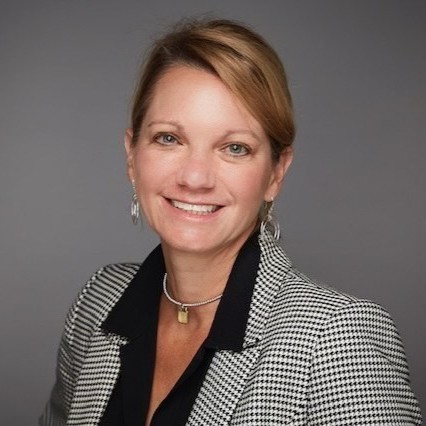THE CRUDE TRUTH Ep. 75 Sharon Muniz -NCN Technology and David Blackmon
Sharon Muntz from NCN Technology discussing the role of AI in the energy industry and its potential impact on businesses. Sharon emphasizes the importance of integrating AI into organizations to improve efficiency and stay competitive. She highlights the need for companies, especially smaller ones, to adopt AI gradually and strategically to address specific business needs rather than implementing it for the sake of it. The conversation also touches on the regulatory challenges associated with AI and the potential implications for innovation and competitiveness.
Overall, Sharon emphasizes the transformative potential of AI in various sectors, including energy, and encourages businesses to embrace technological advancements to enhance productivity and address emerging challenges.
Highlights of the Podcast
01:55 – NCN technology
04:07 – A little background of NCN
05:01 – AI is most beneficial with agencies or with organizations
07:55 – An AI application
08:39 – A little bit of a misconception
09:23 – One thing about AI
11:02 – The best way to leverage AI
13:40 – The big AI company
14:40 – Natural gas will become that transition fuel
16:00 – Nape conference for the luncheon
18:43 – U.S. technology companies
19:23 – The federal government
21:14 – The US are going to be left behind
Please reach out to Sharon Muniz on LinkedIn
Please reach out to David Blackmon on LinkedIn

Check out StatusJet HERE
THE CRUDE TRUTH Ep. 75 Sharon Muniz -NCN Technology and David Blackmon
Video Transcription edited for grammar. We disavow any errors unless they make us look better or smarter.
Narrator [00:00:00] In 1901 at Spindletop Hill near Beaumont. The future of Texas changed dramatically. As, like a fountain of fortune, thousands of barrels of oil burst from the earth towards the sky. Soon, Detroit would be cranking out Model TS by the millions and America was on the move. Thanks to the black gold being produced in Texas, now, more than a century later, the vehicles are different, but nothing else has truly changed. Sure, there may be many other alternative energy sources like wind and solar and electric. But let’s be honest. America depends on oil and entrepreneurs. And if the USA is truly going to be independent, it has to know the crude truth.
Rey Treviño [00:00:43] Nape is a proud sponsor of the Crude Truth. Be sure to register for the Nape Expo 2024 for February 7th through the ninth at the George R Brown Convention Center in Houston, Texas. Hurry and register today. Nape where deals happen.
Narrator [00:00:59] This episode is brought to you by LFS chemistry. Committed to being good stewards of the environment and providing the tools so you can be too. Nape Expo where deals happen. Air compressor solutions when everything is on the line, air Compressor Solutions is the dependable choice to keep commercial business powered up. Sandstone Group, Exec Crue. Elevate your network. Elevate your knowledge. Oil and Gas workers association, Pecos country operating. Fueling our future.
Rey Treviño [00:01:32] All right. Here we are at Expo 2024 in Houston, Texas. I’m Rey Treviño from The Crude Truth. And along with me today is the one the only David Blackmon. David, how are you?
David Blackmon [00:01:44] I’m good man. How are you doing tonight? Our guest today is Sharon Muntz. right?
Rey Treviño [00:01:49] Yes. Yeah. She’s sitting right here. Sharon, how are you?
Sharon Muniz [00:01:51] I’m doing great. Thank you. Very excited to be at Nape and to meet with you all.
Rey Treviño [00:01:55] NCN technologies.
David Blackmon [00:01:56] You are AI.
Sharon Muniz [00:01:58] we work with AI yes we do enterprise application development for clients. We work with a lot of state and federal, local government and entrepreneurs as well.
Rey Treviño [00:02:08] So our an expert on the regulatory space right.
Sharon Muniz [00:02:12] Well I, we have helped with licensing and permitting applications. Not necessarily the regulatory. You would be the expert in the regulatory space.
David Blackmon [00:02:26] I used to be, I’m old now, but.
Sharon Muniz [00:02:28] We would have build the application that would, enable folks to to meet the requirements and through the reporting. So that would be our capacity as well.
Rey Treviño [00:02:41] We’re really I think, you know, so far.
Sharon Muniz [00:02:43] Our neighbor has been great. I mean, meeting so many wonderful people, learning a lot about the industry. I can’t believe, some of the challenges that are being faced right now with all the regulatory issues. I mean, you you bring up a great point. The person who was speaking about it yesterday, it just seems like it’s holding up business quite a bit. It’s holding up the ability for companies to do anything and move forward. Which is a real shame.
Rey Treviño [00:03:10] Yeah. Where is your, what state are you, man? Are you in Texas?
Sharon Muniz [00:03:14] Actually, we are not doing any work with the state of Texas at the moment. Our clients in Texas, even though we are trying to work with a few. Yeah, we, have worked with nine different states as far as state agencies are concerned. We we built a Cal Fire application. We built, a school bus inspection app for our client, Department of Natural Resources application for another state, to help with licensing and permitting. So, yeah, a lot of, inventory type things and. Yeah.
Rey Treviño [00:03:45] Sure. Okay. Sure. NCN technology’s and AI.
Sharon Muniz [00:03:48] Yes.
Rey Treviño [00:03:50] It’s I feel like it is something that, I’m going to have to live with, you know, I don’t know, as I’m old, I, you know, I don’t have to. So it’s like. So it’s coming whether I want it or not.
Sharon Muniz [00:04:01] Exactly. Yeah.
Rey Treviño [00:04:02] So where did this concept for NCN come from.
Sharon Muniz [00:04:04] oh. So I’ve been.
Rey Treviño [00:04:06] A little background. Yeah.
Sharon Muniz [00:04:06] Yeah a little background as NCN. I started the company back in 2009. I’ve been in technology for over 20 years, so I’m dating myself a bit. But AI the reason that we’re talking about it is because you can’t not talk about it if you’re in technology. I mean, it is with us here to go to for the foreseeable future, and it’s changing our world exponentially. So think of the internet.
Rey Treviño [00:04:32] Yes.
Sharon Muniz [00:04:33] Now this is and how it rocked our world. Now look at this is, AI is now going to rock the world as well.
Rey Treviño [00:04:39] I actually that’s a that’s a bad comparison because I mean, seriously, the internet. Yeah. Change everything. You always think about that funny joke on The Simpsons where Homer Simpson comes in, he goes, you know, to one of the kids, what are you doing? No, I’m on the internet. And he’s like, that takes a while.
Sharon Muniz [00:04:54] Yeah, yeah, yeah, yeah, yeah. I mean, and so what, what where I see AI. Most beneficial AI is most beneficial with agencies or with organizations that have huge amounts of data in this. In this industry, there’s a lot of data. So if you have a lot of data and then the data has to be clean, you know, junk in, junk out, it has to be clean. It has to be valuable. That’s where you’re going to get better performance out of your AI.
Rey Treviño [00:05:21] Okay.
Sharon Muniz [00:05:22] Yes.
David Blackmon [00:05:23] So and so you just touched on a subject that people have a great misconception about oil and gas industry, because all you ever see on television, there’s a bunch of really dirty guys out there on a rig turned on, you know, turn in the bike, right? You know, all all over themselves. And none of it looks like it’s a high tech thing, though the amount of technology in the oil and gas business is overwhelming. Yes. It’s just incredible.
Sharon Muniz [00:05:47] Yes. Yeah. There’s, from what I’ve been seeing today, it neighbors applications for every different type of, need out there, which is fantastic. What I have noticed, though, is that the data is very dispersed, across different areas. And so, but that’s very typical in the health care industry. You see, we see two state agencies. I mean, it’s across different industries. It’s not just the energy industry. So figuring that out is something a lot of us need to try and do so we can make better decisions from the data if we have it aggregated.
David Blackmon [00:06:21] I’ve got I have a background in accounting. I started out in the oil and gas business in early 1980s as a revenue account at a tax accountant, and, you know, we were filling out all the forms by hand. Man, we didn’t even have fax machines. That’s all right. How could AI just as an example, a big company that operates 10,000 oil, right. A lot of those out there, has to pay a severance tax on every drop of oil they pull out of the ground. Every cubic foot of gas. You have to pay a severance tax, and you have all the data right associated with that. Could an AI application and theory accumulate all that data? Figure out, the requirements on the forms that that have to go into the state revenue collecting agency and actually automate the process of, filing those monthly tax returns.
Sharon Muniz [00:07:18] So you wouldn’t even need AI to do something like that. You can actually create an enterprise application that would do a lot of that. Now, what the AI component could do is help you with predicting where, how much you’re going to have to pay based on the data. That would be a very nice.
David Blackmon [00:07:36] Prepay your tax.
Sharon Muniz [00:07:37] But no, no, no, I wouldn’t do that. No. But anything where predictive analysis, it would be a very nice area where it could be applied to that scenario. Yeah.
David Blackmon [00:07:50] And really a more apt, example of that is AI, an AI application. And then I actually do know a little bit about this.
Sharon Muniz [00:07:58] Right.
David Blackmon [00:08:00] If you have equipment out in the field and you have, let’s say, your compressor station, hey, AI can actually be predictive on when that compressor station is going to have a mechanical issue. Correct. Basically.
Sharon Muniz [00:08:12] Right, exactly. That’s why it’s being used quite a bit in supply chain management, so that it can predict certain items like that based on the different factors that are, are placed in the, in the model.
David Blackmon [00:08:25] So credibly valuable. Oh yeah.
Sharon Muniz [00:08:27] Hugely valuable because they can keep production going if it can reduce time from being out of operations and not that gain is extremely valuable. Where I think there might be a little bit of a misconception is that every company has a different need. Right. So, well, these are really good examples of where it could fit in. What’s the goal of the company? And creating a proof of concept around where we should implement AI is a really good place to start, because just implementing an AI for the for the sake of implementing I could be, an expenditure that’s unnecessarily. Executed, right? So, I’m very big proponent of making sure that technology fits into the business needs. If it doesn’t, then who cares, right. And it’s. You’re just wasting money. Yeah. Okay, so.
Rey Treviño [00:09:21] I will say this. I think that is one thing about AI. And again, I’m not, I’m not against it. I’m not for I just don’t, I haven’t, I haven’t go, but David definitely knows more about it than I do. Right. And but the fact that you can get into something that is good for your company, right? That’s pretty unique. Yes. That it’s like, oh, wait, maybe I can’t use it, but then I’m not where you like. Well, hold on, let me redo this. Let me show you what a small operator can do. Right. Versus the big operator. And boom, he’s mentioned operations, right? Yes. Operating expenses. You know, that’s if we can lower that exact. And that’s better. You’re a big company or small company. Well, if we can lower operating expense, you know, all bottom dollar is a lot better, especially in this family independent company for us and for the Texans and, chesapeake’s in the world, you know, better for their shareholders.
Sharon Muniz [00:10:09] Absolutely. So there’s multiple ways. So as a smaller company, there’s a lot of applications out there that are already integrating AI. So not necessarily bringing AI into your company and, and doing it from the ground up on your own. As a smaller organization, you would want to look into, like how is SAP integrating AI, how is your CRM system integrating AI as Salesforce, integrating AI, depending on what tools you’re using already in the organization, leverage those tools already so that you don’t have to. You’re not spending more, you’re just utilizing the tools that you already have, and they’re the ones who are investing in it, and they’re going to help you become more efficient. So that is where I would. So just because you don’t have to take AI and bring it into your organization through an independent, source, you can you can bring it in through the tools you’re already using. And I think that is the best way to leverage AI from an organizational standpoint, personally.
Rey Treviño [00:11:06] Now, is that what you guys would do and yours in like, how would it work? You know, you come in, hey, I need some AI.
Sharon Muniz [00:11:12] Yes.
Rey Treviño [00:11:13] I don’t know the problem.
Sharon Muniz [00:11:14] Right, right. So on a consulting basis, what we would do is we would say, what are your business goals for the year and what are the biggest problems? What are the biggest challenges? What tools are you using? And we do go through a bit of an evaluation. And also you want to talk to the people, right? The people who are the most important part of this, like what are their challenges and how can we then, implement or augment by using AI to make the jobs better.
Rey Treviño [00:11:39] Right? Right.
Sharon Muniz [00:11:40] And you might you might discover that through having an interview with one of your team members and they’ll be like, I’m really struggling with this. If I could do this next time faster, then you know, you’re you’re going to save so much money. You paying that employee? Yeah. When they can do it in four hours instead of 40. Right. But wouldn’t that be beneficial because.
Rey Treviño [00:12:00] You know, it would be.
Sharon Muniz [00:12:03] Make your team a little bit more productive. Who doesn’t want to do that’s. Who doesn’t want to do that, right?
Rey Treviño [00:12:09] I think I had a job to take a day and a half, take three this week. Well, while I’ve been here, it’s amazing. What have you done? So we can.
Sharon Muniz [00:12:17] I.
David Blackmon [00:12:17] Mean, another example to, you know, the biggest expense guys like Rahab, you know, out in the field. Yes. Biggest expense is electricity. Yeah.
Sharon Muniz [00:12:26] Oh, yes.
David Blackmon [00:12:27] Yeah, AI could actually you could, you could probably develop an app and go in and analyze the efficiency of his equipment. Yes. And how it’s using power and where where it’s being inefficient could be having some mechanical problem and identify those saves and save them a lot of money in there. You.
Sharon Muniz [00:12:44] Yes, absolutely. And. Wow. That’s a whole nother conversation because AI know. Yeah.
Rey Treviño [00:12:51] That’s that’s not easy.
Sharon Muniz [00:12:52] Yes. Ends. Well AI, I actually uses a lot of energy on top of it. So we were just speaking about that yesterday at the conference and how it’s going to double. It’s going to have a significant impact on how we use energy over the next ten, 20 years because it just uses so much juice. And in my I said, I come from the Virginia area, Northern Virginia, and there’s just a huge amount of data centers in our area. And I thought, well, why don’t we use a combination strategically of solar wind in our area to, to, to juice up some of those? Not 100%, but let’s do a mix.
Rey Treviño [00:13:31] With.
Sharon Muniz [00:13:31] That. Combine it. Yeah, absolutely. Yeah.
David Blackmon [00:13:34] Reliable capacity that way. I mean one of the, one of the CEOs I can’t remember his name. Now, the big AI company said we’re actually going to have to double generation capacity just to accommodate.
Sharon Muniz [00:13:45] And why are we putting solar panels on top of all those buildings. Right. Like how you just displace is they’re just building and building on top of buildings, period. I don’t know, that’s just Toby pie in the sky. I don’t know, but I don’t know.
Rey Treviño [00:13:59] It’s a common sense. You don’t want common sense? No, no, we can’t have that. I mean, I like when people say that, you know, only gas doesn’t like solar panels. Like I have it on some of my.
Sharon Muniz [00:14:08] Well, it’s got to be a combination of it.
Rey Treviño [00:14:11] Absolutely.
Sharon Muniz [00:14:12] Yes, I think that’s a must. I don’t know, I think they do like solar, but I think they know that we have to go in that direction. I mean, I shouldn’t tell you we they know because you’re an oil guy, but I mean, it’s just the reality of it, right?
Rey Treviño [00:14:25] Right now my thoughts are on that is one. Yeah. Well, it’s not going to go away. But I think natural gas I mean, you know, we should go for oil and but some of these guys that are basically banking on natural gas right now, I don’t think there’s any problem with that because at some point, yeah, natural gas will become that transition fuel to the next big thing. Okay. And so yeah, that’s why I think that’ll go. And AI could be a huge help in all of that.
Sharon Muniz [00:14:51] Right. Because it can help predict where to find it. All of it can help reduce costs around transporting. It can help reduce all kinds of of cost. Based on the data.
Rey Treviño [00:15:04] One of my ideas was to use air on railroads.
Sharon Muniz [00:15:07] Yeah, we should talk about that.
Rey Treviño [00:15:11] Do we do we cut that out? Is that $1 billion?
Sharon Muniz [00:15:15] I don’t know right now. We can sell it all day long.
David Blackmon [00:15:20] live streaming this on LinkedIn.
Sharon Muniz [00:15:22] Okay.
Rey Treviño [00:15:25] Yeah, sure. This is on the local news right now.
Sharon Muniz [00:15:28] Yeah. It doesn’t matter if someone else has done it. We just have to do it better. So.
Rey Treviño [00:15:31] Yes. Yes, yes.
Sharon Muniz [00:15:33] Really?
Rey Treviño [00:15:33] No. You’re absolutely right. My father has told us that. It’s like, you know, we’re not trying to reinvent the wheel. Yeah, well, they’ve been drilling all. We just need to do it better and more efficient. Yeah. And that’s what AI. And at some point I got to start to understand, you know, that my younger brother, who’s, you know, it’s amazing what six years will do, but he, he likes it. He gets it, you know.
Sharon Muniz [00:15:53] Do you know what? One of the speakers yesterday. And I forget his name, and, I should know his name. He. He was our guest speaker at the Nape conference for the luncheon. He was phenomenal. And what he was saying was that the energy consumption of the world is basically mostly consumed by 1.3 billion of the 8 billion people, right. So what does that mean for social I mean, social injustice in a way, because all that means that all these other billions of people really need energy. So we need to do a cross. We have to be able to provide energy across all these different outputs, because we want to bring the rest of the world up to speed with us. And it’s just not fair. I’m sorry, but our political views. But that’s why it’s like, yes, we need oil. Yes, we need natural gas, yes, we need solar, yes, we need wind. We need it.
Rey Treviño [00:16:45] All. We need it all. Yeah. We need oh, let me ask this.
Sharon Muniz [00:16:48] Yes.
Rey Treviño [00:16:49] I want to ask.
Sharon Muniz [00:16:50] Bringing them up to our, our economic like level.
Rey Treviño [00:16:54] Let me ask this. And I ask him this question. Sure. Would you two answered second, yes, AI being regulated by the government. And you think that we’re coming down the road and if so, how.
Sharon Muniz [00:17:05] It is coming down the road? Yes. I want to hear about your input.
David Blackmon [00:17:08] I mean, I think that these politicians in Washington.
Sharon Muniz [00:17:12] Yes.
David Blackmon [00:17:12] It’s literally no less American, I do. Right? Most of them are older. Nine.
Sharon Muniz [00:17:17] Yes.
David Blackmon [00:17:17] Really scared.
Sharon Muniz [00:17:18] Yes.
David Blackmon [00:17:19] They’re going to be the ones writing the laws that authorize the regulatory structure around AI. And it is. That’s mind blowing to me. They are literally the worst class of people in our society to be in charge of that. And yet they are in charge of it all.
Sharon Muniz [00:17:36] Well, the regulating this industry, that oil and gas industry.
Rey Treviño [00:17:40] From experience.
Sharon Muniz [00:17:40] And it’s creating a lot of issues where I’m afraid, okay, so I do believe in governance and policy to an extent. Sure, because it’s important for security purposes. But, if it if we put too much regulation on the AI and technology side of the House, we’re going to be way behind China, way behind Russia, way behind all the people who are behind India, behind all the other, global entities that are not putting restrictions. And guess what? That’s going to hurt us all day long. Unfortunately, and we’re already kind if you if you’re playing in the space and you’re not talking to people globally because so many things are being done on a global basis that are phenomenal, then you know, you’re behind. Not everything’s invented here. Yeah. And so anyways, so if we put regulations on, on U.S. technology companies, we just have to be super careful with that.
David Blackmon [00:18:48] Exactly. And that’s always been my even I spent 20 years of my career working with these regulatory agencies, and that whole process came in. Our goal was always not to be not regulated. Right? Right has a role to play.
Sharon Muniz [00:19:03] Absolutely.
David Blackmon [00:19:03] Setting standards. Yeah. And those kinds of things that make sense. The key is to be regulated smartly, efficiently and in a way that allows for the innovation to happen. Yes, within these parameters and standards, and unfortunately, where particularly the federal government ends up going, is is to get way too involved in the weeds and picking winners and losers and and it just that that always creates such a mess. But you know that’s just our system that’s in place and you have to work.
Sharon Muniz [00:19:39] Yeah. Well hopefully they won’t stagnate AI too much because we do have to have boundaries. So but I also feel like that’s at a corporate level responsibility as well. Right. Because if you’re not protecting your data, your people, then that’s on you as a business. So, that’s where policy and governance within your organization is super important, because what you don’t want is some of your IP to go out into some of these portals, and then it’s out there for the world to own. Right. I mean, then it’s gone. So you have to be careful. All right. And. Yeah. So.
David Blackmon [00:20:19] Well, it’s. You’re in a brave new world. Yeah, you are. All are. You all are in despair. Yeah, yeah you are. Y’all won’t believe this. But Sharon said she was nervous about doing this because she hasn’t done a lot of movies. And I actually have seldom seen a more effective spokesperson.
Sharon Muniz [00:20:36] Oh, you’re so kind. Thank You.
Rey Treviño [00:20:39] You need to be speaking more often, but I usually don’t say anything.
Sharon Muniz [00:20:44] Oh, you’re so kind. I’ve actually really enjoyed this. You are so kind. I really have had a lot of fun.
Rey Treviño [00:20:50] Well, I tell you this, you know, as we kind of get closer to the end, you know, where do you see AI going? And more importantly, where do you see technology going over the next five years?
Sharon Muniz [00:20:59] I see NCN technology really assisting companies with, bringing AI to their organizations because especially in smaller ones, they don’t know where to start and they’re going to be left behind. And I’m afraid that our smaller companies in the US are going to be left behind, because if their regulations do start to come down the pike, are they just don’t know where to start. And I don’t blame them. There’s so much fatigue out there already around AI. You know, because they don’t. And then they just push it away.
Rey Treviño [00:21:28] And you don’t understand it and you don’t want to have to deal. Yeah, yeah.
Sharon Muniz [00:21:31] It’s, so gently bringing it into the fold, making sure that companies are really kind of thinking about it and slowly bringing it in the right way instead of throwing money away, but really trying to slowly bring it through.
Rey Treviño [00:21:46] You know.
Sharon Muniz [00:21:46] The right way.
Rey Treviño [00:21:47] Yeah, I love it.
David Blackmon [00:21:48] Brings to mind, you know, one of my big complaints in the oil and gas business over the last 45 years really is that you always, anytime you suggest doing something differently, you’re changing, right? And you get the pushback from the from the veterans. Oh, yeah. Oh, yeah. Now, when I do that, this is the way we’ve always done.
Sharon Muniz [00:22:06] Yes, absolutely.
David Blackmon [00:22:07] The only reason you get for not changing. Yes. Thinking something better is because that’s the way we’ve always done it. That’s got to be real.
Sharon Muniz [00:22:15] It’s really hard and it’s terrifying for them. And it’s terrifying for a lot of companies because it’s new, right? It is. It’s scary. I mean AI, it has been around since the 1950s, but generative AI is just now, as of a year it’s at plus ago is hitting the market. And let me tell you, there’s some massive awesome things that you can do with it. We can create PowerPoints real quick. You can find data. You can do research like there’s so much you can do which will save you a ton of time.
Rey Treviño [00:22:47] You know, you say that I’m a I’m working on my master’s degree right now.
Sharon Muniz [00:22:51] Oh, I’ll get you some ideas.
Rey Treviño [00:22:52] Well.
Sharon Muniz [00:22:53] Technically.
Rey Treviño [00:22:54] Yes. You know, I’m. I just turned 40, and so I graduated a long time ago with my undergrad. Yeah. Where online classes weren’t as big as they are now.
Sharon Muniz [00:23:04] Yes.
Rey Treviño [00:23:05] And students, you know, now, you know, we weren’t allowed to have our computers on in class when I was right. And people taking notes on the computer was kind of unheard of in college. But you saw few people do it. Yeah. Now they’re using AI to write the PowerPoints to do this.
Sharon Muniz [00:23:20] Oh, yeah.
Rey Treviño [00:23:21] So, yeah. So there’s so much going on.
Sharon Muniz [00:23:23] Yeah. It’s going to change the world.
Rey Treviño [00:23:26] you know?
Sharon Muniz [00:23:27] We just have to bring it into our our own worlds little by little. Add the capacity that you’re ready to. Right? But don’t be left behind.
Rey Treviño [00:23:36] Well, sure. And for everybody out there, how can they, reach out to you guys in NCA text.
Sharon Muniz [00:23:41] For, you can email us at consulting at NCN technology.com. Or just visit us at NCN technology.com and check us out and give us a ring and we’d be happy to help.
David Blackmon [00:23:53] Okay. Thank you so much.
Sharon Muniz [00:23:55] Thank you
Rey Treviño [00:23:57] Yeah. Thank you. David, thank you for
Sharon Muniz [00:24:00] David Thank you.
Rey Treviño [00:24:00] Yes.
Sharon Muniz [00:24:01] Thank you. Talk to you more about regulation.
David Blackmon [00:24:03] Absolutely.
Rey Treviño [00:24:04] I think that’s a whole episode.
Sharon Muniz [00:24:05] That’s a whole.
Rey Treviño [00:24:05] Yeah.
Sharon Muniz [00:24:06] Whole episode. Yeah, it’s really interesting.
David Blackmon [00:24:10] And let’s actually just do that
Sharon Muniz [00:24:14] Permanent licensing. We got to have companies respond to that as fast as they can as soon as it comes out. Be ahead of the game.
David Blackmon [00:24:21] Right, right. Exactly right. Exactly. That’ll be Bill. What’s coming. Right. I mean, you can see them coming from a mile away. Oh, yeah. Thanks, Congress forever. And thanks to the agents.
Sharon Muniz [00:24:30] They can’t even pass a budget. Some of my federal clients are like. Sorry, Sharon, we can’t buy right now. We don’t, you know, we don’t know what we can spend. Like what?
David Blackmon [00:24:39] You know, what I need isn’t terrible. Or what I.
Sharon Muniz [00:24:41] Can’t even say. You know, that’s.
David Blackmon [00:24:43] All I do. Is Substack, right? What is podcasting? Substack. And so, while I’m in here doing all this podcasting, I’m not putting content out on satellite. So I need an application that, you know, put in my voice and put out content while I’m just sitting here. And then it’s like.
Sharon Muniz [00:25:01] Yeah, human elements are always important though, so. But no, but we I can absolutely help you with that too. And you would be amazed at what some of the product information that’s generated.
Rey Treviño [00:25:13] I’m afraid of that, though. Right? I’m afraid of losing voice. Yeah. You know. Yes. Getting it right And then people,.
Sharon Muniz [00:25:20] No, you have to read it. Did you hear about the lawyer that did that? And then he went to court. And then the judge was like, read it now did he not. He didn’t he. Yeah. He didn’t read it. And it was bogus material.
Rey Treviño [00:25:35] oh wow.
Sharon Muniz [00:25:35] Because the I hallucinated they call it hallucinations and it made up the information. And then he got and it got thrown out of court.
Rey Treviño [00:25:44] Wow.
David Blackmon [00:25:45] Oh my God.
Sharon Muniz [00:25:45] Yeah, yeah.
David Blackmon [00:25:47] It’s how it never be the risk to write, you know? Hey, I make something up. That isn’t true. I end up getting sued over something you didn’t even write.
Sharon Muniz [00:25:55] Yeah, yeah, yeah. No, you definitely. The human element is supremely important.
Rey Treviño [00:26:00] Yeah. Well, again, Sharon, thank you so much. And, we look forward to having you again on. Thank you. Thank you so much.
David Blackmon [00:26:06] Energy question. We’ll talk about regulations. Yes.
Sharon Muniz [00:26:09] Sounds good. Thank you. All right. Thank you. Take care.
Narrator [00:26:12] Again. Thank you to our sponsors LFSe chemistry Nap Expo, air compressor solutions Exec Crue Oil and Gas Workers association Pecos County. Operating.
Narrator [00:26:28] The easiest way to start your own podcast and TV show. Real News Communications Network stand out from your competition produced streams of high quality social media content. Become a thought leader in your industry with RNCN and you get to be the host. We handle everything else. Tour one of our three locations in Dallas Fort Worth and the colony. Call (972) 402-6333 or visit. Launch a show.com to find out more.
We Want To Thank Our Sponsors Of THE CRUDE TRUTH.
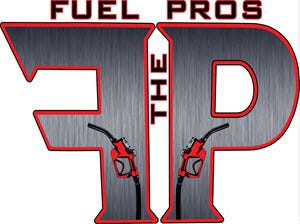
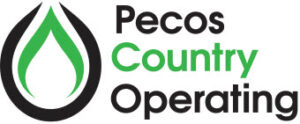

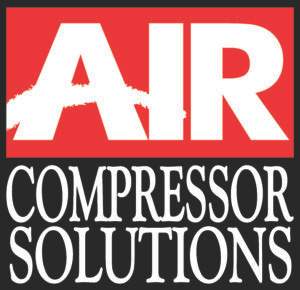
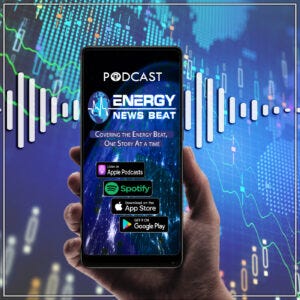
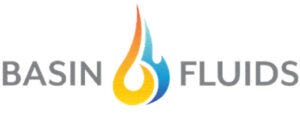
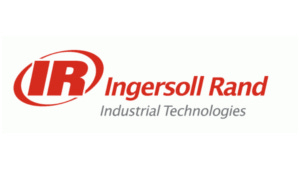
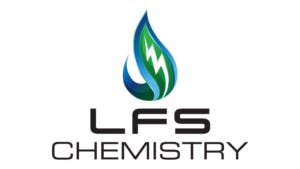
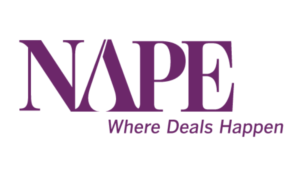

Sponsorships Are Available Or Get Your Own Corporate Brand Produced By Sandstone Media.
David Blackmon LinkedIn
The Crude Truth with Rey Trevino
Rey Trevino LinkedIn
Energy Transition Weekly Conversation
David Blackmon LinkedIn
Irina Slav LinkedIn
Armando Cavanha LinkedIn

